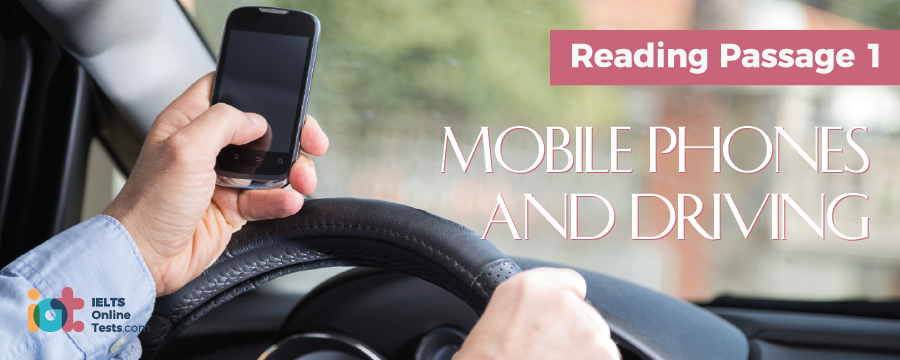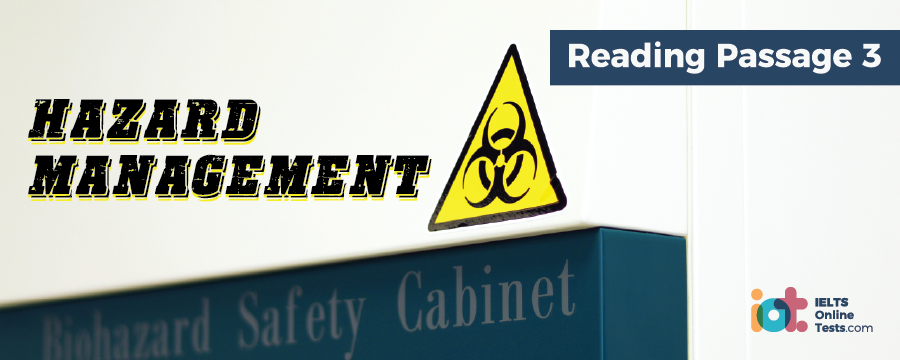
IELTS Mock Test 2022 April
- Published on: 12 Apr 2022
- Tests taken: 774,000
Answer Keys:
Part 1: Question 1 - 16
- 1 iii
- 2 v
- 3 vi
- 4 i
- 5 x
- 6 iv
- 7 A
- 8 E
- 9 B
- 10 C
- 11 D
- 12 NOT GIVEN
- 13 FALSE
- 14 FALSE
- 15 NOT GIVEN
- 16 TRUE
- 1 iii
- 2 v
- 3 vi
- 4 i
- 5 x
- 6 iv
- 7 A
- 8 E
- 9 B
- 10 C
- 11 D
- 12 NOT GIVEN
- 13 FALSE
- 14 FALSE
- 15 NOT GIVEN
- 16 TRUE
Part 2: Question 17 - 29
- 17 D
- 18 C
- 19 C
- 20 1889
- 21 Lease
- 22 Antenna(s)
- 23 Rousseau
- 24 first/1st
- 25 Lifts
- 26 Rust
- 27 the same colour
- 28 Chrysler Building
- 29 Sunset
- 17 D
- 18 C
- 19 C
- 20 1889
- 21 Lease
- 22 Antenna(s)
- 23 Rousseau
- 24 first/1st
- 25 Lifts
- 26 Rust
- 27 the same colour
- 28 Chrysler Building
- 29 Sunset
Part 3: Question 30 - 40
- 30 Hazard management plan
- 31 (the) organisation/(the) company
- 32 Three/3
- 33 Chances rating
- 34 Definite
- 35 multiplied
- 36 Disaster
- 37 High priority
- 38 Eliminate (hazard)
- 39 (to) Store
- 40 Minimise
- 30 Hazard management plan
- 31 (the) organisation/(the) company
- 32 Three/3
- 33 Chances rating
- 34 Definite
- 35 multiplied
- 36 Disaster
- 37 High priority
- 38 Eliminate (hazard)
- 39 (to) Store
- 40 Minimise
Leaderboard:
| # | User | Score | Time | |
|---|---|---|---|---|
| Farhana Azhari |  | 9.0 | 15:17 | |
| Nalinthorn Dilaphon |  | 9.0 | 15:38 | |
| Huỳnh Tấn Hưng |  | 9.0 | 15:47 | |
| 4 | siska sembiring |  | 9.0 | 15:50 |
| 5 | Vi Le |  | 9.0 | 15:59 |
| 6 | Kiệt Trần |  | 9.0 | 16:05 |
| 7 | Doniyorbek Omonullayev |  | 9.0 | 16:07 |
| 8 | Sofya Radjabova |  | 9.0 | 16:10 |
| 9 | malika malika |  | 9.0 | 16:34 |
| 10 | quan do |  | 9.0 | 16:38 |
Review & Explanations:
Questions 1-6
Reading Passage 1 has seven paragraphs A – G.
Choose the correct heading for paragraphs B – G from the list of headings below.
Write the correct number i-x in boxes 1-6.
| List of Headings | |
| i | Impact of mobile phones in hazards |
| ii | Texting statistics |
| iii | International reactions |
| iv | Further research required |
| v | Evidence from around the globe |
| vi | Challenges of enforcement |
| vii | Global agreement on penalties |
| viii | Contradictory data |
| ix | Risks of talking to passengers |
| x | Balancing the risks |
1 Paragraph B
2 Paragraph C
3 Paragraph D
4 Paragraph E
5 Paragraph F
6 Paragraph G
- 1 Answer: iii
Keywords in Questions
Similar words in Passage
Q1. Paragraph B
Several countries around the world have already imposed a national Jaw with heavy infringements.
Note
The whole paragraph B shows how the governments in the world react to the use of mobile whilst driving. The first sentence shows clearly the main idea “several countries around the world have already imposed a national Jaw with heavy infringements”. Heading “international reactions” suits for this paragraph. So the answer is iii
- 2 Answer: v
Keywords in Questions
Similar words in Passage
Q2. Paragraph C
Time and again, in study after study replicated across the world, the use of a cell phone by the driver has been proven, beyond any sense of reasonable doubt, to dramatically increase the probability of a motor vehicle crash
Note
The paragraph C refers to many studies about using mobile by drivers are carried out in the world. So the heading for paragraph C is “evidence in the world”. The answer is v.
- 3 Answer: vi
Keywords in Questions
Similar words in Passage
Q3. Paragraph D
Although this is only a pending idea,the government knows this will be a difficult infringementto police but a start needs to be made and people need to understand the consequences of what potentially could happen.
Note
We can see that the paragraph D is about the enforced fine become the difficulty to the police in New Zealand. So the heading for paragraph D can be “challenges of enforcement”. The answer is vi.
- 4 Answer: i
Keywords in Questions
Similar words in Passage
Q4. Paragraph E
Most people find It takes 2 and a half seconds to react in a dangerous situation but if you are on the phone you can add another 2 seconds onto that.
Your attention is divided
Note
The paragraph mentions many effects of mobile phone that is shown clearly in the sentence “your attention is divided”. In the list of given headings, “impacts of mobile phones in hazards” suits for this paragraph. So the answer is i.
- 5 Answer: x
Keywords in Questions
Similar words in Passage
Q5. Paragraph F
However, doesn’t holding a conversation while driving seems just as distracting as eating food or reaching for a CD? Accidents were happening decades before the cell phone was introduced so should we be taking this matter so seriously.
Note
+ The paragraph F refers to another risks of accidents such as eating food, reaching for a CD.
+ From the list of headings we have 2 options: ix and x relate to risk. The paragraph don’t mention to passengers so we reject option ix
+ We choose the heading “balance the risks”. The answer is x.
- 6 Answer: iv
Keywords in Questions
Similar words in Passage
Q6. Paragraph G
Lack of data leaves uncertain results but it seems research is ongoing and surveys and tests are being carried out on a regular basis to reach some kind of conclusion as to just how dangerous and potentially fatal this habit may be.
Note
+ In the list of headings, we can see the option viii and the paragraph G refer to “data” but in the paragraph is “lack of data”, which is not relate to “contradictory data”. We reject option viii.
+ The paragraph G refers mainly to “research”, “survey”, “test”. So the option iv “further research required” is the answer.
Questions 7-11
Look at the following list of statement (questions 7-11) based on ‘Mobile phones and driving’
Match the statement with the correct person or department A-E.
| A | Ministry of Transport |
| B | Road safety groups |
| C | Waikato University |
| D | American radio host |
| E | The New Zealand government |
7 is currently putting together feedback from the general public.
8 proposed specific penalties for mobile phone use while driving.
9 statistically proven the higher likelihood of an accident.
10 believes any use of a phone while driving has potential risks.
11 speaking on the phone is an overrated risk.
- 7 Answer: A
Keywords in Questions
Similar words in Passage
Q7. ... is currently putting together feedback from the general public
Ministry of Transport is still preparing a report based on public consultation.
Note
Take a look at the first sentence in the paragraph D we can see the department “Ministry of Transport” followed by “is still preparing a report based on public consultation” which have the same meaning to question 7.
So the answer is A.
- 8 Answer: E
Keywords in Questions
Similar words in Passage
Q8. ... proposed specific penalties for mobile phone use while driving.
In New Zealand, a proposal made by a previous Labourled Government suggests a $50 fine and 27 demerit points for any person using a cell phone whilst driving.
Note
Also at the first sentence in paragraph D, we see it is New Zealand which proposed specific penalties for mobile phone use while driving.
So the answer for Q8 is E.
- 9 Answer: B
Keywords in Questions
Similar words in Passage
Q9. ... statistically proven the higher likelihood of an accident.
Research by road safety groups suggests speaking on a phone whilst driving increases your chances of an accident.
Note
The second sentence in paragraph C refers to “higher likelihood of an accident” with many words have the same meaning, “increases" is equal to “higher”, “likelihood" is equal to “chances”, “statistically" relates to “research". So we can see “road safety groups” is mentioned – option B is the answer for Q9.
- 10 Answer: C
Keywords in Questions
Similar words in Passage
Q10. ... believes any use of a phone while driving has potential risks.
It is a common misconception that hands free kits are safe to use, but research conducted by Waikato University has proven that these can be equally as dangerous as hand held phones.
Note
+ The final sentence of paragraph D refers to hands free kits – another form of using phone, that relate to Q10. So it’ easy to see that Waikato University – the option C is mentioned.
+ It’s easy to mislead to the choice D – America radio host, by this sentence of paragraph E “an American radio host suggested that banning cell phones whist driving was taking it a step too far” But in the final sentence the American radio host doesn’t assume phoning is a risk. That’s not the content of the question 10.
So the answer is C.
- 11 Answer: D
Keywords in Questions
Similar words in Passage
Q11 ... speaking on the phone is an overrated risk.
On the other hand, an American radio host suggested that banning cell phones whist driving was taking it a step too far, “if we ban cell phones, what’s next? No billboards, coffee drinking, or CD players?” The host agreed that texting whilst driving was a danger but phoning was not.
Note
+ In the Q11, phoning is “overrated risk” means not a really risk.
+ In the final sentence of paragraph E, phoning is also mentioned not be a danger.
So we find the needed information in paragraph E, it is seen that American radio host match to Q11. The answer is D.
Questions 12-16
Do the following statements agree with the information given in the reading passage?
In boxes 12-16 an your answer sheet write
| TRUE | if the statement agrees with the information |
| FALSE | if the statement contradicts the information |
| NOT GIVEN | If there is no information on this |
12 The law in Ireland regarding mobile phone use while driving is the world’s most serious.
13 According to research conducted by road safety groups, speaking on a phone makes an accident nine times more likely.
14 Reaction times in an emergency are doubled if the driver is using a mobile.
15 Eating while driving is statistically as dangerous as using a mobile.
16 More research is required to form a clearer conclusion.
- 12 Answer: NOT GIVEN
Keywords in Questions
Similar words in Passage
Q12. The law in Ireland regarding mobile phone use while driving is the world’s most serious.
Note
Skimming the whole passage, we just find clue to the law in New Zealand in the paragraph D, not find any information about Ireland. So the answer is NOT GIVEN.
- 13 Answer: FALSE
Keywords in Questions
Similar words in Passage
Q13. According to research conducted by road safety groups, speaking on a phone makes an accident nine times more likely.
Research by road safety groups suggests speaking on a phone whilst driving increases your chances of an accident , increasing to nine times morelikely when texting.
Note
+ Take a look at the second sentences in paragraph C, it has the key words “research”, “road safety groups”, “nine times morelikely” which appear in Q13.
+ The question mention about speaking on a phone makes an accident nine times more likely, but in the paragraph C it is texting make accident nine times.
So the answer is FALSE.
- 14 Answer: FALSE
Keywords in Questions
Similar words in Passage
Q14. Reaction times in an emergency are doubled if the driver is using a mobile.
But it has been proven that our reaction time is never fast enough when confronted with a road hazard, but if you are having a conversation at the same time it will slow your reaction time by even more.
Note
+ Take a look at the second sentence in the paragraph E, it has the key word “reaction times” which is mentioned in the question.
+ In the paragraph, the reaction time is slow when using a mobile, “a road hazard” is equal to “emergency”.
+ Understanding the idea of the question, the answer here should be FALSE.
- 15 Answer: NOT GIVEN
Keywords in Questions
Similar words in Passage
Q15. Eating while driving is statistically as dangerous as using a mobile.
However, doesn’t holding a conversation while driving seems just as distracting as eating food or reaching for a CD? Accidents were happening decades before the cell phone was introduced so should we be taking this matter so seriously?
Note
+ Take a look at a few sentences in the paragraph F, it has the key words “eating”, “while driving” which are mentioned in Q15.
+ In the paragraph E we don’t find any figure or statistic about accident caused by eating while driving.
+ Understanding the idea in the question, the answer here should be NOT GIVEN.
- 16 Answer: TRUE
Keywords in Questions
Similar words in Passage
Q16. More research is required to form a clearer conclusion.
Lack of data leaves uncertain results butit seems research is ongoing and surveys and tests are being carried out on a regular basis to reach some kind of conclusion as to just how dangerous and potentially fatal this habit may be.
Note
+ Take a look at the final sentence in the paragraph G, it has the keywords “research” and “conclusion” which are mentioned in the question.
+ According to the sentence, more research are being carried out regularly to reach clearer conclusion.
+ Understanding the idea in the question, the answer here should be TRUE.
READING PASSAGE 1
You should spend about 20 minutes on Questions 1-16, which are based on Reading Passage 1 below.

MOBILE PHONES AND DRIVING
A. Though once perceived a luxury cell phones have become a common possession over the last ten years or so. Due to modern day technology and public demand cell phones have been made affordable to most. However, one of the most controversial topics of today is whether or not we should be using our cell phones whilst driving, Does it pose a danger to ourselves and other drivers? Or doesn’t it make any difference to the likelihood of an accident.
B. Several countries around the world have already imposed a national Jaw with heavy infringements. More recently the UK, Australia and Finland have joined the ranks of countries opposing this very hazardous act, with Ireland imposing the harshest penalties on the continent (a third offence can mean 3 months imprisonment). Also in Europe, the Netherlands is fining offenders 2000 Euros and 2 weeks in jail.
C. This dangerous distraction contributes largely to motor vehicle accidents and the statistics are Increasing daily as we continue to take our eyes off the road to call or even more dangerously text. Research by road safety groups suggests speaking on a phone whilst driving increases your chances of an accident, increasing to nine times more likely when texting. Time and again, in study after study replicated across the world, the use of a cell phone by the driver has been proven, beyond any sense of reasonable doubt, to dramatically increase the probability of a motor vehicle crash.
D. In New Zealand, a proposal made by a previous Labour led Government suggests a $50 fine and 27 demerit points for any person using a cell phone whilst driving, although the Ministry of Transport is still preparing a report based on public consultation. Although this is only a pending idea, the government knows this will be a difficult infringement to police but a start needs to be made and people need to understand the consequences of what potentially could happen. It is a common misconception that hands free kits are safe to use, but research conducted by Waikato University has proven that these can be equally as dangerous as hand held phones.
E. On one hand, using a cell phone whilst driving has become an integral part of our lives and is going to be a hard habit to kick. But it has been proven that our reaction time is never fast enough when confronted with a road hazard, but if you are having a conversation at the same time it will slow your reaction time by even more. Most people find It takes 2 and a half seconds to react in a dangerous situation but if you are on the phone you can add another 2 seconds onto that. Your attention is divided; part of you concentrates on your conversation, the other on driving. The demands of die conversation and the road are competing, therefore making it a cognitive distraction as well as physical as you are removing one hand from the steering wheel to hold the phone. On the other hand, an American radio host suggested that banning cell phones whist driving was taking it a step too far, “if we ban cell phones, what’s next? No billboards, coffee drinking, or CD players?” The host agreed that texting whilst driving was a danger but phoning was not.
F. Many people agreed with him in saying that texting was a definite hazard as the act of looking down would lead your eyes off the road. However, doesn’t holding a conversation while driving seems just as distracting as eating food or reaching for a CD? Accidents were happening decades before the cell phone was introduced so should we be taking this matter so seriously?
G. Obviously opinions will differ on this matter, and it will always remain a debatable issue. A long list of countries seems to be following the trend and imposing a law against cell phones on the road, but there is still and even longer list yet to follow. Lack of data leaves uncertain results but it seems research is ongoing and surveys and tests are being carried out on a regular basis to reach some kind of conclusion as to just how dangerous and potentially fatal this habit may be.
------------------------------------------------------------------------------------------
Great thanks to volunteer Uc Bu who has contributed these explanations and markings.
If you want to make a better world like this, please contact us.






